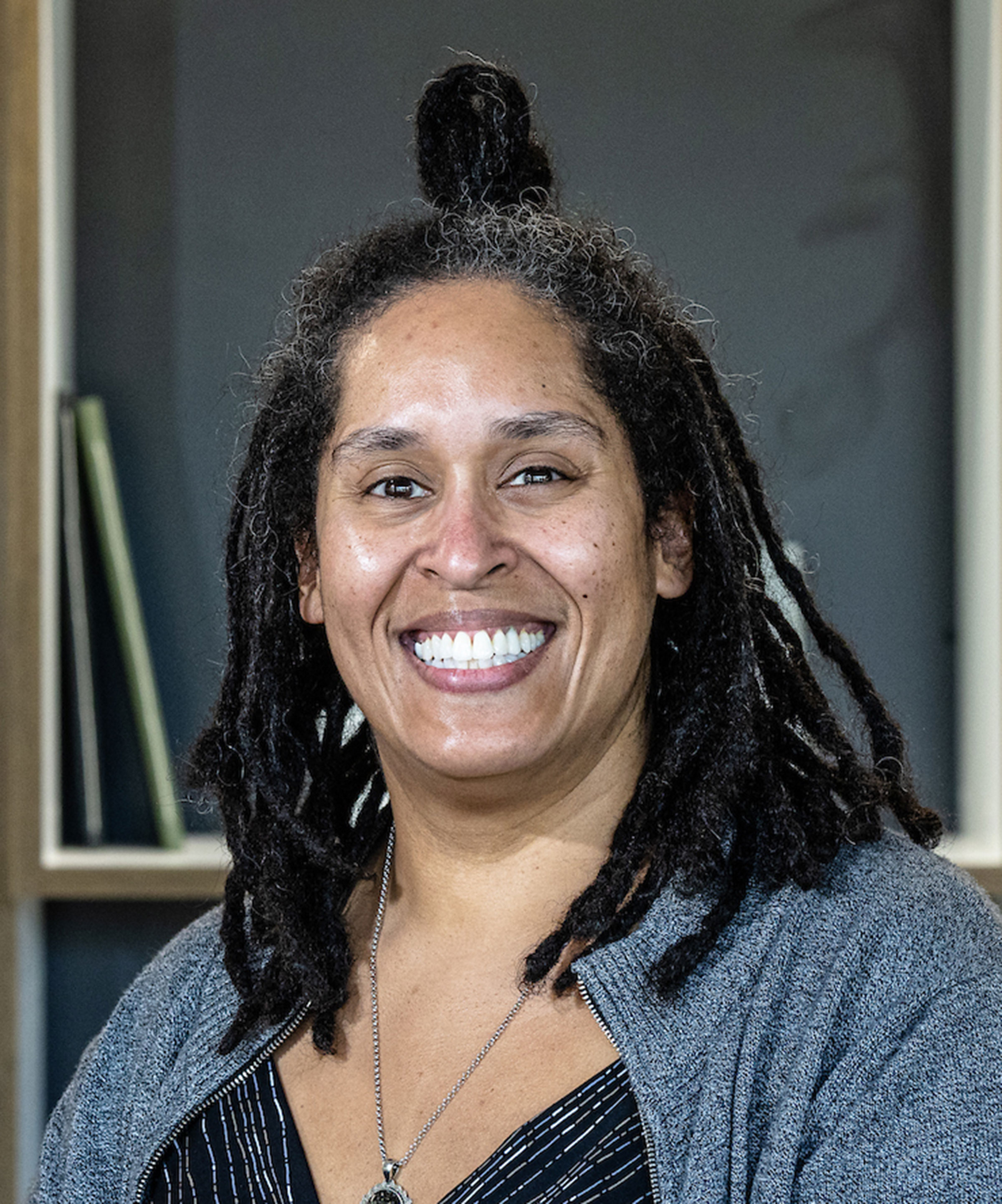Juneteenth is a federal holiday that commemorates the anniversary of the June 19, 1865, announcement from a Union Army general proclaiming freedom for enslaved people in Texas.
It’s much more personal than that, however, for Jessica Salow, Arizona State University’s assistant archivist of Black Collections.
“It’s a celebration of my ancestors, a celebration of being Black and a celebration of understanding my place and our place as Black people in this country,” Salow said.
The ASU Library, along with the Arizona Historical Society and the Black Family Genealogy and History Society, will present a Juneteenth celebration June 19 at the Arizona Heritage Center.
The free event, which will run from 2:30 to 5:30 p.m., will feature live performances, speakers and educational tables.
ASU News spoke to Salow about the event, the meaning of Juneteenth, the commodification of the holiday and why President Joe Biden signing the Juneteenth National Independence Day Act into law is so important.
The interview has been edited for clarity and brevity.
Jessica Salow
Question: Correct me if I’m wrong, but it seems like Juneteenth isn’t widely known outside the Black community.
Answer: That is absolutely true. In some of the circles I’m in, a lot of people are just like, “What is that? Why is that significant?” Growing up, I never learned about Juneteenth in any of my textbooks or lessons. It wasn’t until I was an adult that I started hearing about it, that I started understanding why it was significant.
Q: Given that lack of knowledge, how significant was it for President Biden to make Juneteenth a recognized federal holiday?
A: Within our educational system, (President Abraham) Lincoln is talked about, his Emancipation Proclamation and stuff like that. And then they end it at that. But then people need to realize and understand that when we’re talking about Juneteenth, it was two whole years later after the Emancipation Proclamation and these people still didn’t realize and understand that they were free. So, yeah, I think it was really significant.
I hate to say this, but I really do think a lot of people didn’t understand or realize the importance of Martin Luther King Jr. until he got a holiday. So, I feel like when you shine a spotlight … and this is unfortunate that the federal government has to come in and do these types of things, but when it gets brought up by the government people pay more attention to it. But there also needs to be more education about why Juneteenth has always been significant for the Black community and for folks to understand why it was celebrated and continues to be celebrated and deserves to be respected by people outside of the Black community.
Q: Given the recent events in the country and in particular the shooting in Buffalo where 10 Black people were killed, how important is it that we take a moment not just to celebrate Juneteenth but think about what it means?
A: The whole situation in general, regarding Black people and their safety … there’s always going to be a contingency of folks in the country who feel like they have superiority over folks. And for us to break that, for us to have the ability to teach people a different way or have people understand that we’re not the enemy and we’ve never really been the enemy, I think is really significant. We continuously have these events happen year after year. This is around the same time that George Floyd was murdered. It feels like every year around this time something significant happens within white supremacist circles or these types of oppression circles that brings to light why we need to continue to fight, why we need to continue to have a seat at the table and a voice in understanding why white supremacy is the way that it is and how it infects not just our minds but our systems.
Q: How does the Juneteenth celebration fit into that?
A: It brings community together. It brings all of us together into an understanding that we’re human beings, too. We just have a different skin color. It’s easy for the winners to tell their story, but it’s even more significant for the people who are oppressed to tell their story. And it’s even more significant for people who are not in those circles to understand how oppression affects folks. So, to be able to highlight our history, highlight our people, is significant because it brings more attention to the events that are happening, why we need to be more critical about our thought process, our teaching, and understanding why we as a society need to come together in order to support one another.
Q: We’ve seen companies try to commodify the holiday with Juneteenth products like ice cream. What do you think about that?
A: For me, I don’t want it to be a commodity. Unfortunately, that stuff is out of my control because I don’t control capitalism. I don’t control those systems that are in place in order to make a profit. My intent and purpose for this event on the 19th is to bring people together and celebrate and highlight community.
Q: What do you hope to accomplish with the event?
A: Through our planning committee, we want to make sure that as many Black faces are at the table as possible to highlight this event. It’s important for us to make our voices heard. When we do this event, we are highlighting Black speakers and we’re highlighting Black businesses. We’re also highlighting the need to get out to vote and to understand the significance of your place, not just within your community or your family, but in this state as well.
We need to also realize and recognize our history. I think that’s what we’re doing first and foremost is to highlight and recognize our history, to bring folks in who can talk about and highlight that history and give it significance of why it’s important to us. We would like it to be a yearly event. We want to start doing a yearly celebration of Juneteenth in a way that would celebrate and highlight Black excellence, love, joy, and make sure Black people know they always have a place, and that we will do all that we can in order for them to tell their stories.
HOW TO HELP: For those interested in supporting the Community Driven Archives Initiative Fund, please visit the ASU Foundation webpage.
More Arts, humanities and education

ASU instructor’s debut novel becomes a bestseller on Amazon
Desiree Prieto Groft’s newly released novel "Girl, Unemployed" focuses on women and work — a subject close to Groft’s heart.“I have always been obsessed with women and jobs,” said Groft, a writing…

‘It all started at ASU’: Football player, theater alum makes the big screen
For filmmaker Ben Fritz, everything is about connection, relationships and overcoming expectations. “It’s about seeing people beyond how they see themselves,” he said. “When you create a space…

Lost languages mean lost cultures
By Alyssa Arns and Kristen LaRue-SandlerWhat if your language disappeared?Over the span of human existence, civilizations have come and gone. For many, the absence of written records means we know…



